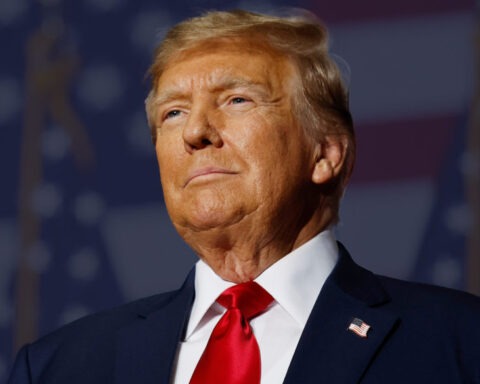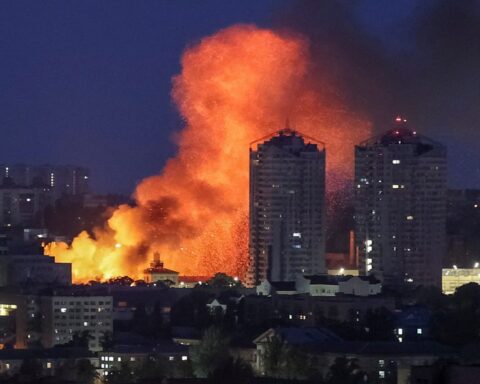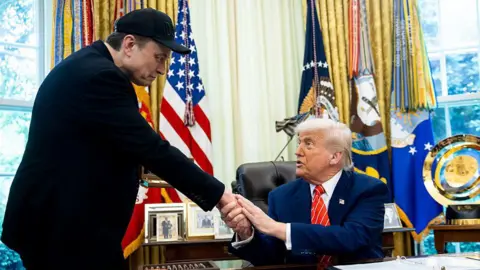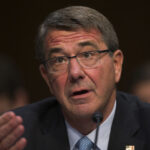On March 14, 2025, as U.S. President Donald Trump touted “very good and productive” talks with Russian President Vladimir Putin over the Ukraine war, speculation surged that his outreach might aim to fracture Russia’s deepening alliance with China—a move dubbed a “reverse Nixon” by analysts.
Thank you for reading this post, don't forget to subscribe!Drawing from reports by BBC, CNN, NBC, Fox News, and Canadian outlets like CBC and The Globe and Mail, this theory posits that Trump seeks to realign global power by pulling Putin closer to Washington, weakening Beijing’s strategic hand in an era of heightened U.S.-China rivalry.
The talks, held in Moscow on March 13 via envoy Steve Witkoff, followed Ukraine’s U.S.-pressured ceasefire acceptance, hinting at a broader diplomatic gambit. Yet, skepticism abounds: Putin’s cautious response, China’s economic lifeline to Russia, and Trump’s simultaneous overtures to Beijing cast doubt on the strategy’s viability. This article delves into Trump’s motives, the Russia-China bond, and whether this audacious play can succeed—or risks backfiring.
The Reverse Nixon Hypothesis
The notion that Trump is attempting a “reverse Nixon” stems from his unexpected warmth toward Putin since taking office in January 2025. CNN reported on March 14 that analysts see parallels to President Richard Nixon’s 1970s China outreach, which exploited Sino-Soviet rifts to tilt the Cold War balance.
Today, Trump might aim to invert that playbook, peeling Russia from China—Washington’s “biggest long-term rival,” per NBC News—to dilute Beijing’s global clout. Fox News framed the Moscow talks as a Trump triumph, with the president boasting on Truth Social of a “very good chance” to end the Ukraine war, a conflict straining Russia’s economy and deepening its reliance on China.
BBC News noted Trump’s March 13 directive to Witkoff to urge Putin to spare Ukrainian troops in Kursk, suggesting a carrot-and-stick approach: peace in Ukraine for better U.S.-Russia ties.
The Globe and Mail speculated this could be “strategic genius or reckless improvisation,” reflecting Trump’s campaign vow to reorder global alliances. Yet, CNN’s Stephen Collinson cautioned that Putin might be “playing Trump,” pocketing concessions without budging from Beijing’s orbit, a view echoed by CBC analysts wary of Trump’s transactional style.
The Ukraine War as Leverage
The Ukraine conflict, now a three-year quagmire, is the linchpin of Trump’s outreach. NBC News detailed how Ukraine’s March 11 ceasefire nod in Jeddah, under U.S. pressure, set the stage for the Moscow talks. Trump’s team, including Secretary of State Marco Rubio, sees ending the war as a dual win: a domestic boast and a wedge to loosen Russia-China ties. Fox News reported Trump’s claim that Russia’s economy, battered by sanctions, makes Putin ripe for a deal, with Leavitt asserting, “We’ve never been closer to peace.”
However, Putin’s response complicates the picture. BBC News highlighted his March 13 Kursk visit, where he vowed to “liberate” the region, signaling military resolve over diplomatic retreat.
CNN noted his ceasefire openness was conditional—Ukrainian surrender in Kursk—a non-starter for Kyiv. CBC News suggested Putin might exploit Trump’s haste, stalling to secure battlefield gains while leaning on China’s $226 billion trade lifeline, per 2024 figures.
The Globe and Mail warned that Trump’s exclusion of Ukraine from talks risks alienating allies, undermining his broader geopolitical aims.
Russia and China: An Ironclad Bond?
The Russia-China partnership, forged in a “no limits” 2022 pact, poses a formidable barrier. CNN reported that China’s oil purchases and dual-use exports have offset Western sanctions, with trade hitting record highs.
NBC News underscored Xi Jinping’s personal bond with Putin, cemented by frequent summits—like their January 2025 virtual call, per CBC—making Russia a counterweight to U.S. pressure over Taiwan. Fox News analysts, like Rebekah Koffler, argued Putin’s economic dependence on China—60% of its exports in 2024—dwarfs any U.S. incentive Trump might offer.
BBC News recalled historical mistrust, like the 1969 Sino-Soviet border clashes, but noted today’s alignment is strategic: both nations share a vision of a multipolar world against U.S. hegemony. The Globe and Mail cited Putin’s March 14 nod to Trump’s “great and correct” ceasefire idea, yet his insistence on broader talks suggests he’s hedging, not pivoting.
CNN’s Juliana Liu warned that Trump’s friendliness might spook Beijing, but “nothing the U.S. does” will make Putin risk China’s support, a sentiment trending on X where users see the alliance as “unbreakable.”
Trump’s Mixed Signals: China in the Mix
Trump’s strategy falters under scrutiny of his China policy. NBC News reported his 20% tariffs on Chinese imports, enacted in February 2025, alongside boasts of a “great” Xi relationship, per CNN.
Fox News highlighted his push for nuclear stockpile cuts with both Moscow and Beijing, muddying the “reverse Nixon” narrative.
BBC News questioned whether Trump’s charm offensive—praising Xi and Putin alike—reflects a grand plan or scattershot diplomacy, with Rubio’s March 14 optimism clashing with Defense Secretary Pete Hegseth’s focus on “deterring China,” per NBC.
CBC News flagged Trump’s unpredictability as a wildcard. His January 23 threat of sanctions if Putin didn’t end the war, per BBC, contrasts with his March 14 warmth, suggesting either tactical flexibility or incoherence.
The Globe and Mail noted Xi’s March 14 call with Putin, reaffirming their “strategic partnership,” per a Chinese readout, as a signal to Trump: Beijing won’t be sidelined. Posts on X reflect Canadian skepticism, with one user quipping, “Trump’s playing chess, but Putin and Xi are playing Go.”
Can It Work? The Skeptics Weigh In
Experts doubt Trump can fracture the Russia-China axis. CNN cited Michael Clarke of Deakin University, who dismissed the “reverse Nixon” as “ahistorical”—today’s dynamics lack the ideological rifts Nixon exploited.
NBC News quoted Ali Wyne of the International Crisis Group, arguing Putin’s distrust of U.S. reliability, given Trump’s term limit, outweighs any short-term gains. Fox News’ Koffler agreed, noting Russia’s elite sees China as a stable partner, unlike a mercurial Washington.
BBC News highlighted practical hurdles: Russia’s sanctions-hit economy needs China’s markets more than U.S. goodwill, with 2024 trade data showing a 30% export drop to the West.
CBC News warned that Trump’s pivot risks alienating Europe—French President Emmanuel Macron’s March 14 query, “How can you face China if you’re weak with Putin?” per CNN, underscores this. The Globe and Mail suggested China might even gain, exploiting U.S.-Europe rifts to charm the EU, as seen in Foreign Minister Wang Yi’s Munich outreach.
The Risks of Failure
A misstep could backfire spectacularly. NBC News reported Five Eyes allies—Canada included—mulling reduced intelligence sharing over Trump’s Russia tilt, per a March 7 story, fearing leaks to Moscow.
CNN warned that a strengthened Russia-China bloc could embolden Xi on Taiwan, with Hegseth’s Asia focus stretched thin. Fox News speculated Putin might pocket a Ukraine deal—sanctions relief or a buffer zone—without reciprocating, leaving Trump’s credibility bruised.
CBC News flagged Canada’s stake: a disrupted NATO or trade war with China hits Ottawa hard, with 15% of exports tied to U.S.-China flows.
The Globe and Mail cautioned that Trump’s “America First” isolationism—echoed in his March 14 claim, “I’m aligned with the U.S., not anybody,” per NBC—might cede global leadership to Beijing. Posts on X from Canadians lament a “retreating U.S.,” with one noting, “China’s the real winner if Trump stumbles.”
Conclusion: A Long Shot in a Shifting World
Trump’s bid to pull Putin from China, illuminated by his March 14, 2025, talks, is a bold geopolitical gamble rooted in Ukraine’s war and U.S.-China rivalry.
BBC, CNN, NBC, Fox News, CBC, and The Globe and Mail reveal a president wielding personal diplomacy to reshape alliances, betting on Putin’s economic woes and his own deal-making prowess. Yet, the Russia-China bond—forged in mutual distrust of the West and economic necessity—stands as a towering obstacle, with Putin’s cautious engagement and Xi’s firm grip suggesting limits to Trump’s sway.
Success hinges on a fragile ceasefire and Putin’s unlikely pivot, but failure risks isolating allies and emboldening Beijing. As Canada and the world watch, Trump’s “reverse Nixon” teeters between visionary stroke and diplomatic mirage—a high-stakes play in a multipolar age where the pieces rarely move as planned.








